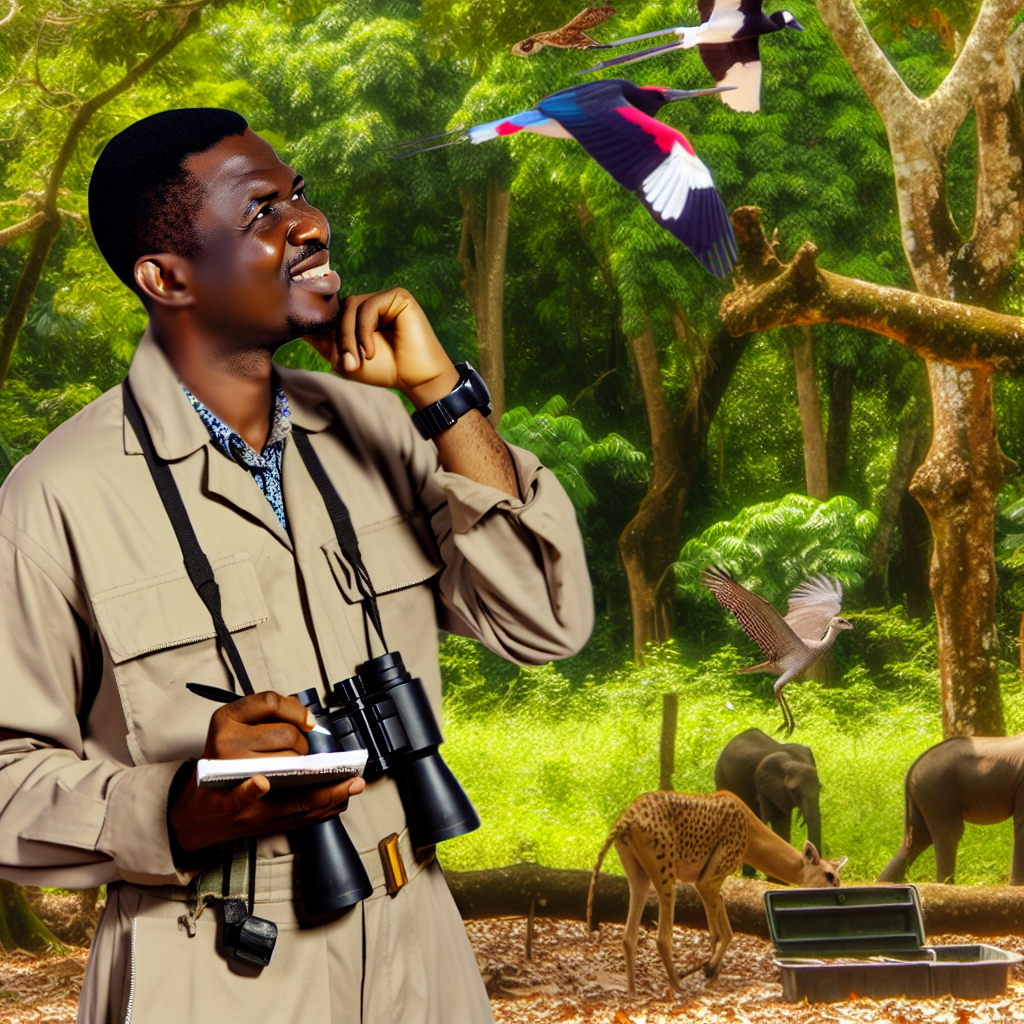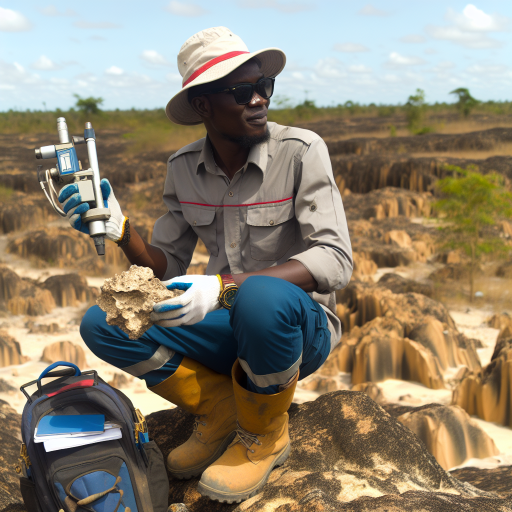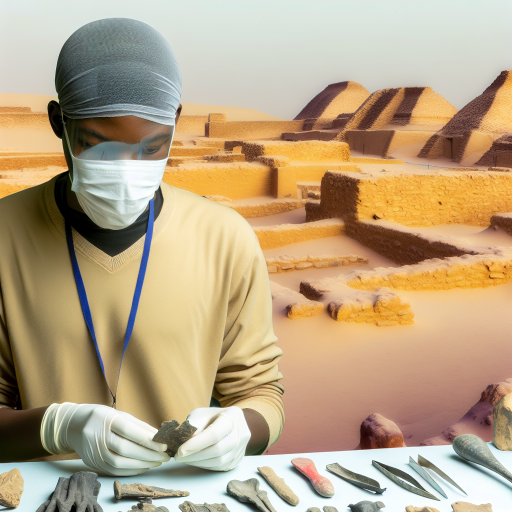Introduction
Exploring Nigerian wildlife through the lens of zoology offers a fascinating insight into the diverse ecosystems and unique species found in this region.
Brief overview of Nigerian wildlife
Nigeria is home to a wide variety of wildlife, including elephants, lions, leopards, chimpanzees, and a vast array of bird species.
The country’s rich biodiversity can be attributed to its diverse range of habitats, from dense rainforests and savannas to mangrove swamps and mountainous regions.
Importance of studying Nigerian wildlife through zoology
By studying Nigerian wildlife through zoology, researchers can gain a deeper understanding of the ecological relationships between species and their environment.
Zoologists play a crucial role in conservation efforts by monitoring wildlife populations, identifying threats to their survival, and developing strategies to protect endangered species.
Furthermore, studying Nigerian wildlife through zoology can help inform policies and management practices aimed at preserving biodiversity and ensuring the sustainable use of natural resources.
Definition of Zoology
Zoology is a branch of biology that deals with the scientific study of animals.
It encompasses their behavior, structure, physiology, classification, and distribution.
Role of Zoologists in Studying Wildlife in Nigeria
- Zoologists play a crucial role in the conservation of wildlife in Nigeria.
- They conduct research to understand the behavior, ecology, and population dynamics of various species.
- Zoologists also work to protect endangered species and their habitats in Nigeria.
- They collaborate with conservation organizations and government agencies to develop strategies for wildlife management.
- By studying wildlife, zoologists help in the sustainable management of natural resources in Nigeria.
Tools and Techniques Used in Zoology to Understand Wildlife in Nigeria
- Field Observations: Zoologists spend time in the field observing and documenting animal behavior.
- Camera Traps: These are used to monitor wildlife in remote areas where direct observation is difficult.
- GPS Tracking: Zoologists attach GPS devices to animals to track their movements and study their habitats.
- Genetic Analysis: DNA analysis helps zoologists in species identification and studying genetic diversity.
- Remote Sensing: Satellite imagery is used to study habitat loss, fragmentation, and changes in wildlife distribution.
- Population Surveys: Zoologists use techniques like mark-recapture to estimate population sizes and trends.
- Behavioral Studies: Observing animal behavior helps in understanding social interactions, feeding habits, and reproductive strategies.
Zoologists play a vital role in studying wildlife in Nigeria.
Their research and conservation efforts significantly contribute to the preservation of biodiversity.
They are essential for the sustainable management of natural resources.
Common wildlife species in Nigeria
Nigeria is home to a diverse array of wildlife species.
Some of the most common wildlife species found in Nigeria include:
- Elephants
- Lions
- Giraffes
- Leopards
- Antelopes
- Monkeys
Endangered species in Nigeria and conservation efforts
Unfortunately, many wildlife species in Nigeria are facing the threat of extinction.
Some of the endangered species in Nigeria include:
- African Elephant
- Pygmy Hippopotamus
- Western Lowland Gorilla
- Cross River Gorilla
To address the challenges facing these endangered species, conservation efforts have been put in place.
These efforts include habitat protection, anti-poaching measures, and community conservation programs.
Impact of human activities on wildlife in Nigeria
Human activities in Nigeria have had a significant impact on wildlife populations.
Some of the major impacts include:
- Habitat destruction due to deforestation for agriculture and urban development
- Illegal wildlife trafficking for bushmeat, trophies, and traditional medicine
- Climate change leading to altered habitats and food sources for wildlife
Addressing these issues requires a multi-faceted approach involving government policies, community engagement, and public awareness campaigns.
Learn More: Animal Science Conferences and Seminars in Nigeria
Behavioral patterns of Nigerian wildlife
Nigerian wildlife exhibits a wide range of behavioral patterns due to the diverse ecosystems found in the country.
Each species has unique behaviors that help them survive in their respective environments.
Some common behavioral patterns observed in Nigerian wildlife include territoriality, communication through vocalizations, social hierarchies within groups, and migration to find food or mates.
For example, the African elephant, one of the iconic wildlife species in Nigeria, showcases complex social structures within their herds.
They exhibit strong familial bonds and communicate through various vocalizations to convey messages to other members of the group.
Reproduction and mating habits of wildlife in Nigeria
The reproduction and mating habits of wildlife in Nigeria vary across different species.
Some wildlife species exhibit monogamous relationships, while others engage in polygamous mating systems.
For instance, the courtship displays of birds of paradise found in Nigeria are some of the most intricate in the animal kingdom.
Males perform elaborate dances and calls to attract females and establish dominance within their territories.
Interactions between different species in Nigerian ecosystems
Interactions between different species in Nigerian ecosystems are crucial for maintaining the delicate balance of nature.
These interactions can be competitive, cooperative, or symbiotic in nature.
For example, the relationship between the oxpecker bird and large herbivores like buffaloes or rhinos is a classic case of mutualism.
The oxpecker feeds on parasites found on the skin of these mammals, while the mammals benefit from being cleaned of harmful pests.
Understanding the behavioral patterns, reproduction, and interactions of Nigerian wildlife through zoological studies provides valuable insights into the intricate web of life within the country’s diverse ecosystems.
Uncover the Details: How to Choose a Career in Applied Geology
Challenges faced in studying Nigerian wildlife through zoology
Exploring the rich biodiversity of Nigerian wildlife through zoology comes with its fair share of challenges.
These obstacles can hinder the progress of research and conservation efforts in the country.
Lack of funding and resources for research
One major challenge that researchers face when studying Nigerian wildlife through zoology is the lack of adequate funding and resources.
Conducting fieldwork, collecting data, and analyzing samples require financial support, which is often scarce in the region.
Transform Your Career with Expert Guidance
Get personalized mentorship consulting that’s tailored to your unique path. Our expert advice is actionable and exclusive.
Get StartedThe limited funding available for research often leads to a lack of equipment, technology, and manpower.
This shortage can hinder the ability of scientists to conduct thorough and comprehensive studies on Nigerian wildlife.
Limited data and information on certain species
Another challenge in studying Nigerian wildlife through zoology is the limited data and information available on certain species.
Some animal populations in the country are poorly studied or undocumented.
This makes it difficult for researchers to fully understand their behavior, habitats, and conservation status.
This lack of information can pose a significant obstacle to conservation efforts.
It hinders the development of targeted strategies to protect vulnerable species.
Without comprehensive data, it is challenging to implement effective conservation measures to safeguard Nigeria’s wildlife.
Addressing issues such as funding shortages and limited data availability is crucial.
This advancement will improve our understanding of the country’s diverse animal species and ensure their long-term conservation.
Delve into the Subject: Teaching Anthropology in Nigerian Secondary Schools

Exploring Nigerian Wildlife through Zoology
Collaboration between Zoologists and Local Communities in Wildlife Conservation
Zoologists play a crucial role in wildlife conservation by engaging with local communities to protect and preserve Nigeria’s diverse ecosystems.
By working together, these stakeholders can develop sustainable strategies to safeguard the country’s rich biodiversity.
- Organizing community outreach programs to educate residents on the importance of wildlife conservation
- Implementing initiatives to empower local communities to actively participate in conservation efforts
- Conducting research to understand the impact of human activities on wildlife habitats and populations
- Collaborating with government agencies and non-profit organizations to implement conservation projects
- Providing training and resources to local communities to support wildlife conservation efforts
Educational Programs and Initiatives to Raise Awareness about Nigerian Wildlife
Educating the public about Nigerian wildlife is essential for fostering a culture of conservation and promoting the sustainable management of natural resources.
Through various educational programs and initiatives, zoologists can raise awareness about the importance of protecting the country’s unique fauna and flora.
- Organizing school visits and workshops to introduce students to the diversity of Nigerian wildlife
- Developing educational materials such as brochures, posters, and online resources to inform the public about endangered species
- Hosting awareness campaigns and events to engage the community in wildlife conservation efforts
- Collaborating with media outlets to amplify messages about the value of preserving Nigeria’s natural heritage
- Establishing partnerships with educational institutions to integrate wildlife conservation into curricula
Opportunities for Individuals Interested in Pursuing a Career in Zoology in Nigeria
Nigeria offers a wealth of opportunities for individuals passionate about wildlife and eager to contribute to conservation efforts.
Whether through research, education, or advocacy, pursuing a career in zoology can lead to fulfilling and impactful work in safeguarding the country’s biodiversity.
- Enrolling in zoology programs at universities and research institutions to acquire knowledge and skills in wildlife conservation
- Participating in internships and volunteer programs to gain practical experience in the field of zoology
- Joining professional organizations and networks to connect with fellow zoologists and experts in the field
- Attending conferences, workshops, and seminars to stay updated on the latest developments in wildlife research and conservation
- Exploring career opportunities in government agencies, NGOs, conservation organizations, and academic institutions
Delve into the Subject: Applied Chemistry Alumni Network in Nigeria
Importance of Understanding Nigerian Wildlife
Studying Nigerian wildlife through zoology is crucial.
This study helps unravel the mysteries of its diverse ecosystem.
It allows us to appreciate the beauty and significance of each species.
Each species plays a unique role in the environment.
By studying their behavior and habitats, we enhance protection efforts.
Preserving these unique creatures is vital for future generations.
Call to Action for Conservation in Nigeria
We must take immediate action to conserve and protect wildlife in Nigeria.
Supporting local conservation initiatives is essential.
Raising awareness about the importance of biodiversity is crucial.
Advocating for sustainable practices can make a significant impact.
Together, we can ensure that Nigerian wildlife thrives.
Let’s act now to enrich our lives for years to come.
Additional Resources
Genome-wide investigations reveal the population structure and …
Developmental instability in wild Nigerian olive baboons (Papio …




